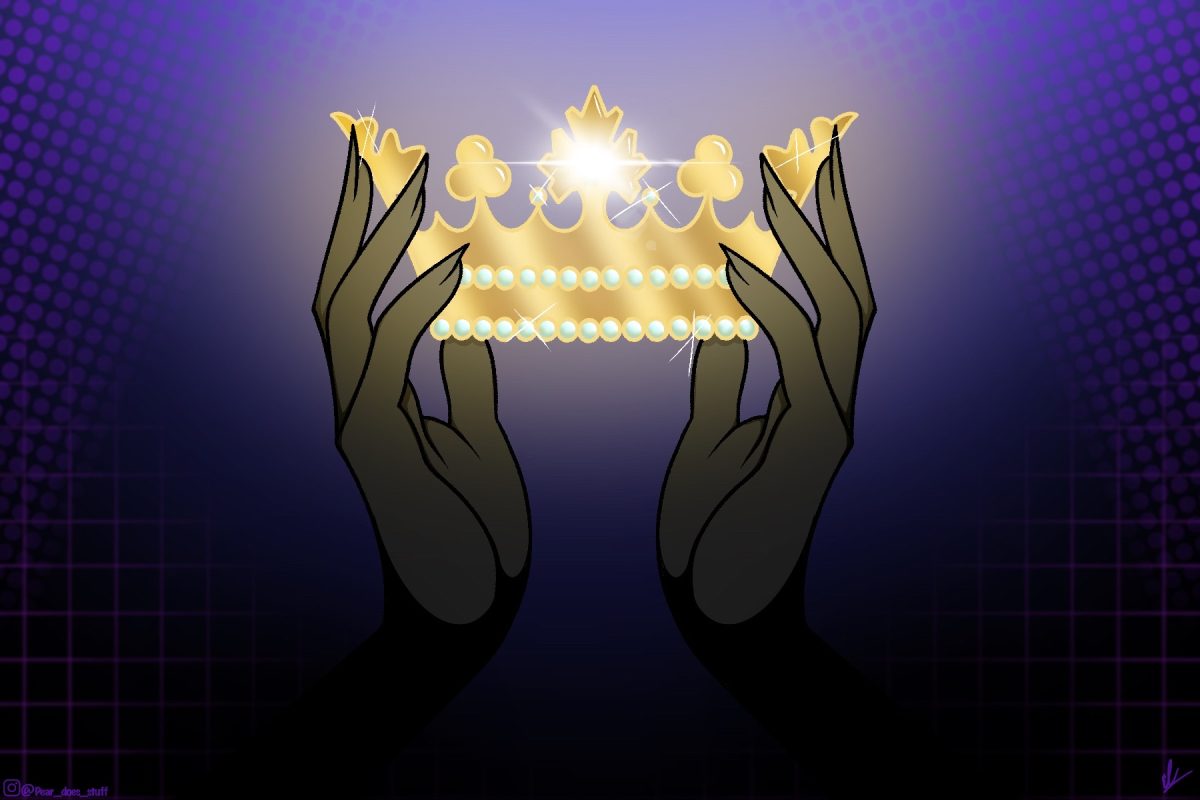Lucifer’s Season 6 gives more closure to the characters than the fans
October 25, 2021
*Includes spoilers from previous seasons.*
The final and sixth season of Lucifer gives the fans what they truly desire: a memorable ending to a worthwhile journey. On Sept. 10, 2021, the 10-episode final season premiered only on Netflix, quickly becoming one of the most watched shows in America. Although the plot is a little bit predictable, season six focuses on the culmination of character relationships and growth, as well as the debate between destiny and agency.
Lucifer (Tom Ellis) is the devil. In season one, he finds himself in Los Angeles after retiring from his position as the King of Hell. He falls in love with Chloe Decker (Lauren German), a detective at the Los Angeles Police Department, and solves crimes both celestial and normal.
Season six begins eerily similar to the first ever scene of season one; Lucifer, carefree and irreverent, is pulled over by an LAPD cop for speeding. The exact same opening scene brings his journey back around to the start, and the parallelism makes us wonder — how much has he really changed over the years?
The sixth season might just be when Lucifer goes through the most character growth. Dr. Linda Martin, his therapist since the first season, is as reliable as ever throughout Lucifer’s irrational plans. But in this season he shows a new appreciation for her advice, and it’s heart-warming to watch Lucifer learn from his mistakes as a result of her therapy. Linda’s strong, unfaltering friendship with Lucifer is one of the reasons that he’s able to go from the devil to next-in-line to become God.
It’s gratifying to see Linda finally getting the recognition she deserves from the characters in the show, especially Lucifer.
But not everyone has such satisfying story development. Chloe’s daughter, Trixie, is absent for most of the season, and her father, Dan, is stuck in hell. His role seems insignificant at the end of the season, and many are left wondering what the point of his isolation was.
Even with the unresolved conflicts and loopholes, Lucifer is a binge-worthy show for those willing to appreciate a meaningful story.
The angel Amenadiel, another prominent character, deals with real-world issues. In the sixth episode, “A Lot Dirtier Than That,” he confronts police corruption in the LAPD while training to become an officer. On his first day on the job, he faces the officer who racially profiled and harassed him years ago.
One has to appreciate how season six brings to light America’s struggles with police brutality and injustice, issues that can even affect the mightiest of angels.
To avoid the repetitiveness of solving crimes at the LAPD, season six experiments in plot and style. The third episode “Yabba Dabba Do Me” launches Chloe and Lucifer into someone’s hell loop as animated cartoon characters.
After the show runners found out Ellis’s talent for singing, Lucifer was introduced as the devil who could sing. In the sixth episode, he plays the song “Bridge Over Troubled Water” on piano, singing with a new character introduced in this season.
Because Lucifer isn’t the greatest at articulating his feelings, this scene shows us the importance of expression through music. It’s touching for both the characters and audience. The moment also marks a turning point in the season for Lucifer and his relationship with this unknown character.
Still, the writers manage to incorporate a range of emotions into the season. From the comedy of Lucifer ignoring all rational sense to doing whatever he wants to the closure of the finale, each episode brings a different mood to the table. The cliffhangers don’t let up either – from Dan’s relationship with his killer to Ella’s realization of the supernatural.
Even though the acting has always been between good and spectacular throughout the show, this season shows the true potential in which Tom Ellis and Lauren German can go. The several emotional scenes makes the show so much more meaningful, and the chemistry between the cast is one of a kind.
From the beginning of the show, Lucifer’s relationship with Chloe has always been about sacrifices. In season six, Chloe is determined to end the pattern of loss. But they can’t change the core of themselves, which is their selflessness. Lucifer and Chloe have always been willing to sacrifice themselves for the greater good, even if it means they won’t be together. So while the ending of season six doesn’t truly satisfy Lucifer fans, it’s the ending that is worthy of Lucifer and Chloe’s story.
As season 6 comes to a full circle, everyone gets a happy ending, but it still feels like something is missing. The final episode resolves the rest of the characters’ lives in a couple of minutes. They grow old and die in a montage, living out the end of their arcs. The series finishes these endings too quickly. Another major character from previous seasons, Trixie, isn’t even included, leaving the storyline incomplete.
Like many other pieces of media that include time-traveling from the future, Lucifer struggles with the whole fate vs. free will idea. Was it free will that decided how the season would end, or was it just fate? The show never really answers this question, and leaves the viewer to decide.
So is the last season worth the watch? Not really, but it gives most of the characters a worthy ending without much of a linear plot. Even with the unresolved conflicts and loopholes, Lucifer is a binge-worthy show for those willing to appreciate a meaningful story.
This story was originally published on Wildcat Tribune on October 11, 2021.





























![IN THE SPOTLIGHT: Junior Zalie Mann performs “I Love to Cry at Weddings,” an ensemble piece from the fall musical Sweet Charity, to prospective students during the Fine Arts Showcase on Wednesday, Nov. 8. The showcase is a compilation of performances and demonstrations from each fine arts strand offered at McCallum. This show is put on so that prospective students can see if they are interested in joining an academy or major.
Sweet Charity originally ran the weekends of Sept. 28 and Oct. 8, but made a comeback for the Fine Arts Showcase.
“[Being at the front in the spotlight] is my favorite part of the whole dance, so I was super happy to be on stage performing and smiling at the audience,” Mann said.
Mann performed in both the musical theatre performance and dance excerpt “Ethereal,” a contemporary piece choreographed by the new dance director Terrance Carson, in the showcase. With also being a dance ambassador, Mann got to talk about what MAC dance is, her experience and answer any questions the aspiring arts majors and their parents may have.
Caption by Maya Tackett.](https://bestofsno.com/wp-content/uploads/2024/02/53321803427_47cd17fe70_o-1-1200x800.jpg)
![SPREADING THE JOY: Sophomore Chim Becker poses with sophomores Cozbi Sims and Lou Davidson while manning a table at the Hispanic Heritage treat day during lunch of Sept 28. Becker is a part of the students of color alliance, who put together the activity to raise money for their club.
“It [the stand] was really fun because McCallum has a lot of latino kids,” Becker said. “And I think it was nice that I could share the stuff that I usually just have at home with people who have never tried it before.”
Becker recognizes the importance of celebrating Hispanic heritage at Mac.
“I think its important to celebrate,” Becker said. “Because our culture is awesome and super cool, and everybody should be able to learn about other cultures of the world.”
Caption by JoJo Barnard.](https://bestofsno.com/wp-content/uploads/2024/01/53221601352_4127a81c41_o-1200x675.jpg)











